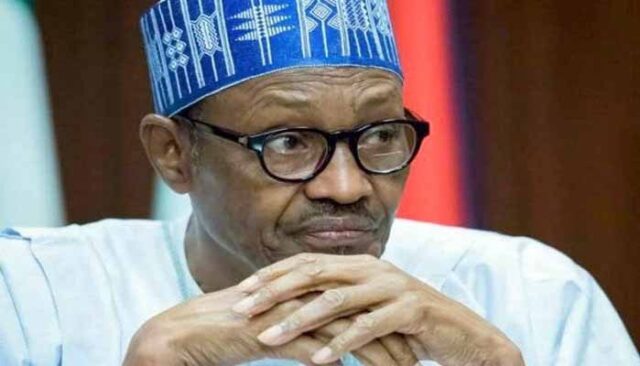Although illegal mining of gold and other precious metals as well as solid minerals had been going on in the northern part of Nigeria for decades, two recent events have given official seal to the direct assault on the Constitution on ownership and exploitation of minerals.
On February 25, 2020, the Federal Government launched the Presidential Artisanal Gold Mining Development Initiative (PAGMI) in Yauri Local Government Area of Kebbi State. The programme was to aid local miners of gold to improve their capacity and efficiency in extraction of the precious metal and formalise their activities. It is a comprehensive artisanal and small-scale gold mining development programme to foster the formalisation and integration of artisanal gold mining activities into Nigeria’s legal, economic, and institutional framework.
And in a follow up later in the year, the Central Bank of Nigeria (CBN) paid N5 billion to the Zamfara State Government for the bars of gold the state had purchased from local miners.
With the furore generated by the double-faced enforcement of the constitutional provision that reserved crude oil and solid minerals deposits on the Exclusive List and subject to the control by the Federal Government alone, governors of the six Niger Delta states were galvanised by the ground swell of shock and disbelief on the development.
Today, Monday, November 15, they are meeting in Port Harcourt, Rivers State capital, to deliberate on what they see as rising impunity through the skewed implementation of the provisions on exploitation of mineral resources.
“We cannot apply laws in such a manner that it becomes discriminatory because you cannot mine solid minerals somewhere in Zamfara and you can’t allow Niger Delta to manage their oil,’’ Ifeanyi Arthur Okowa, governor of Delta State and chairman of South South Governors Forum, said last week in Asaba ahead of Monday’s meeting.
The governors are looking to evaluate the developments surrounding Zamfara’s gold against the backdrop of the fact that they have absolutely no role in the exploitation and management of crude oil in the region. Given that the Federal Government has failed to activate its promise to introduce the mechanisms to incorporate the activities of illegal refiners of crude oil into the formal sector under the modular refineries programme, it is expected that the main plank of their decision will be a demand for ‘artisanal’ mining of oil which will be forwarded to President Muhammadu Buhari.
According to Okowa, Nigeria is not making progress as it ought to because the issues of restructuring and resource control are yet to be addressed.
Addressing the press, the governor said restructuring and resource control as well as security would form a major plank of the discussion at the meeting, noting that “South-South Governors have been in the forefront for the devolution of power to states and local governments.”
Hitherto, the governors had been reticent and withdrawn as the Buhari regime continuously eroded the principles of equity and fairness in the management of resources, then proceeded to brazenly adopt a different approach on Zamfara’s gold. This time, they are left with no room to manouevre.
In October, Bello Matawalle, governor of Zamfara, had established what he called a “gold reserve”.
“The establishment of the gold reserve is part of the relentless efforts by my administration to diversify the state’s economy by exploring all potentials of the state, and maximally utilizing them for the benefit of both the present and future generations,” he said, stating that the gold was entirely mined and refined by local artisanal miners in the state.
However, apart from the constitution, the Nigerian Minerals and Mining Act 2007, which was passed into law on March 16, 2007, to repeal the Minerals and Mining Act, No. 34 of 1999 for the purposes of regulating the exploration and exploitation of solid materials in Nigeria vested the control of all properties and minerals in Nigeria in Abuja, and prohibits unauthorised exploration or exploitation of minerals.
The Act further stated that all lands in which minerals have been found in commercial quantities shall from the commencement of the Act be acquired by the Federal Government in accordance with the Land Use Act.
Matawalle’s declaration of a “gold reserve” the meaning of which was not defined elicited sharp reaction from other parts of the country. Ohaneze Nd’Igbo, Afenifere and Pan Niger Delta Forum (PANDEF), the socio-political groups for the three zones in the south, aligned with the Middle Belt Forum to condemn the Zamfara initiative.
On its part, PANDEF recalled that as Acting President, Yemi Osinbajo had in August 2017 announced that the Federal Government will legalize illicit modular refineries in the Niger Delta oil hub by the end of that year and supply them with crude at a reasonable price. In a statement released after a meeting with Niger Delta community leaders in Abuja, Osinbajo said the move was aimed at fulfilling the demands of the community leaders. “The Federal Government has started the process of replacing illegal refineries in the region with modular ones,” he said, adding that each of the states in Niger Delta would receive two modular refineries for start up in the fourth quarter of 2017.
While no action has been taken to actualise the plan, the regime has railroaded the Presidential Artisanal Gold Mining Development Initiative, culminating in Matawalle declaring a “gold reserve” for his state.
On the other hand, over 2,287 illegal refineries in the Niger Delta region have been destroyed between 2015 -2019, according to figures issued by the Nigerian Navy. In fact, in 2017 when the pledge on legalizing illegal modular refineries was made, a total of 1,218 illegal refineries were destroyed, while 383 and 418 illegal refining sites were destroyed in 2018 and 2019 respectively.
Since the uproar over Zamfara’s gold reserve, efforts have been made by federal authorities to recalibrate the situation. Mr. Olamilekan Adegbite, Minister of Mines and Steel Development, said he has taken time to “correct the impression” by Matawalle that the gold deposits in his state belong to his people exclusively.
“I met with the governor to correct the impression that the gold belongs to the state as the governor portrayed it, but it belongs to the Federal Government”, Adegbite said. He said he explained to Matawalle that “all mineral resources in Nigeria belong to the Federal Government and mineral resources in the country are on the exclusive list.”
However, Adegbite said Zamfara government buying gold from its local miners was quite commendable and in the right direction.
“The governor discovered that bandits were buying the minerals from artisanal miners; the artisanal miners were selling gold to bandits at a cheap rate, which the bandits were enjoying,” the minister said while justifying the arrangement.
But the South-south governors are looking to resist “such a discriminatory disposition, that runs foul of the constitutional provision on ownership of mining rights in Nigeria.”
Said Okowa ahead of the Monday meeting: “There are Acts of the National Assembly that dealt specifically and unequivocally with oil production and solid minerals. We cannot apply laws in such a manner that it becomes discriminatory because you cannot mine solid minerals somewhere in Zamfara and not allow Niger Delta to manage their oil.”
According to the chairman of South South Governors Forum, the explanations from federal spokespersons only reinforce the perception that the “federal government has apparently given tacit endorsement of the decision of Zamfara State to assume exclusive right to solid minerals in the state, particularly the gold deposits.









